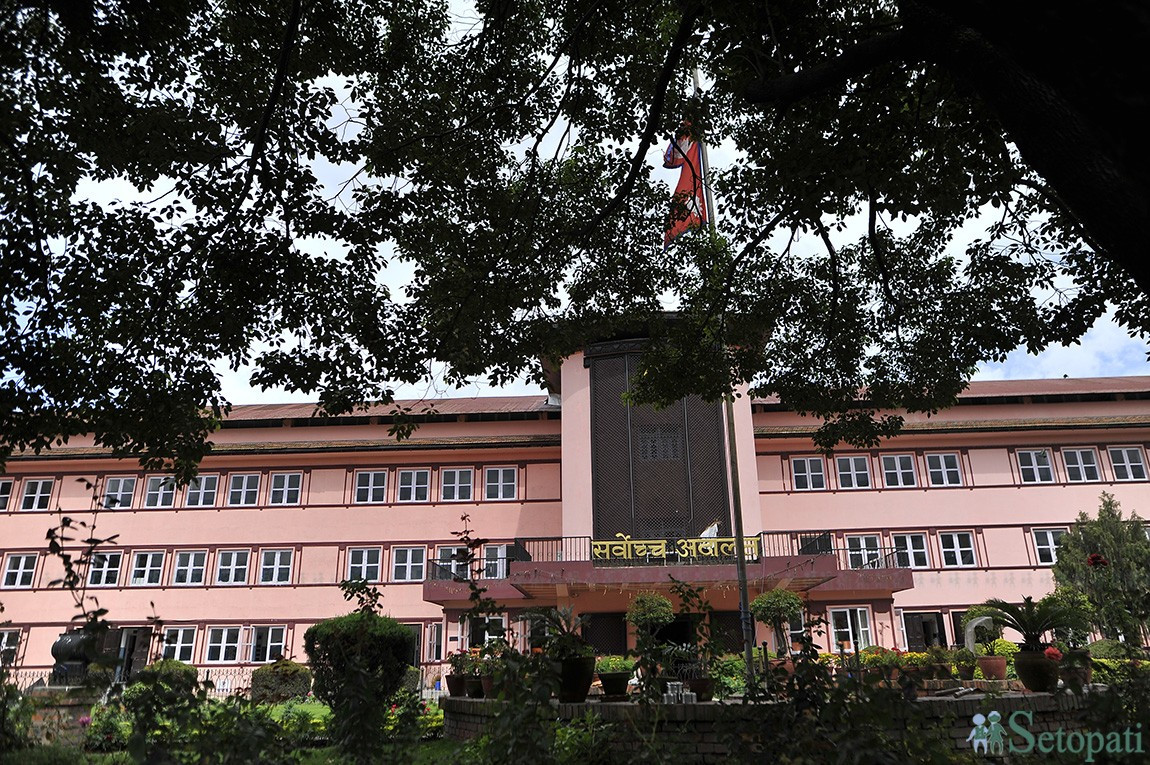Senior advocate Bal Krishna Neupane pleading to defend the House dissolution by Prime Minister (PM) KP Sharma Oli has argued before the constitutional bench that the current PM has the rights that the king had during the Panchayat regime.
Neupane, who was the first of the PM's 13 lawyers who defended the dissolution on Wednesday, pointed that Article 58 of the current Constitution, like Article 90 of the Constitution of 1962 that granted the king the residual powers, has granted those rights to the PM.
"Powers relating any subject that are not mentioned in the list of powers of the federation, province or the local level entity, or in the concurrent/shared powers of federation and the province, or not stated in this Constitution, shall rest with the federation as residual powers," Article 58 of the Constitution states about residual powers.
He argued that since the Constitution has granted residual powers on the PM, it cannot stop House dissolution when no other article stops it. "One should either show that the Constitution prohibits dissolution or say that the residual powers have been granted on another office-bearer and not the federal government," he argued.
He pointed that while the Constitution has prohibited no-confidence motion against the PM before two years but has not similarly stated that the House cannot be dissolved.
Senior advocate Surendra Bhandari who argued later also claimed that the PM has the executive rights to dissolve the House as the Constitution has not banned it. He cited examples of Britain and Sri Lanka, and the multiple dissolutions under the Constitution of 1990 when Justice Sapana Malla Pradhan asked him how constitutional morality can work when something is not written.
He cited how the Supreme Court (SC) revoked House dissolution by Man Mohan Adhikari and ruled that a minority government cannot dissolve the House despite the Constitution not including that prohibition. He also cited another example where the court added the word 'consent' to the rights of privacy in a case about virginity test and reminded how the court extended the term of First Constituent Assembly (CA) despite no such provision in the Constitution.
Eleven other lawyers including Madhav Basnet, Madhav Baskota, Bijay Mishra, Anjan Neupane, Seema Dhital and Ramesh Guragai also made their arguments on Wednesday.

